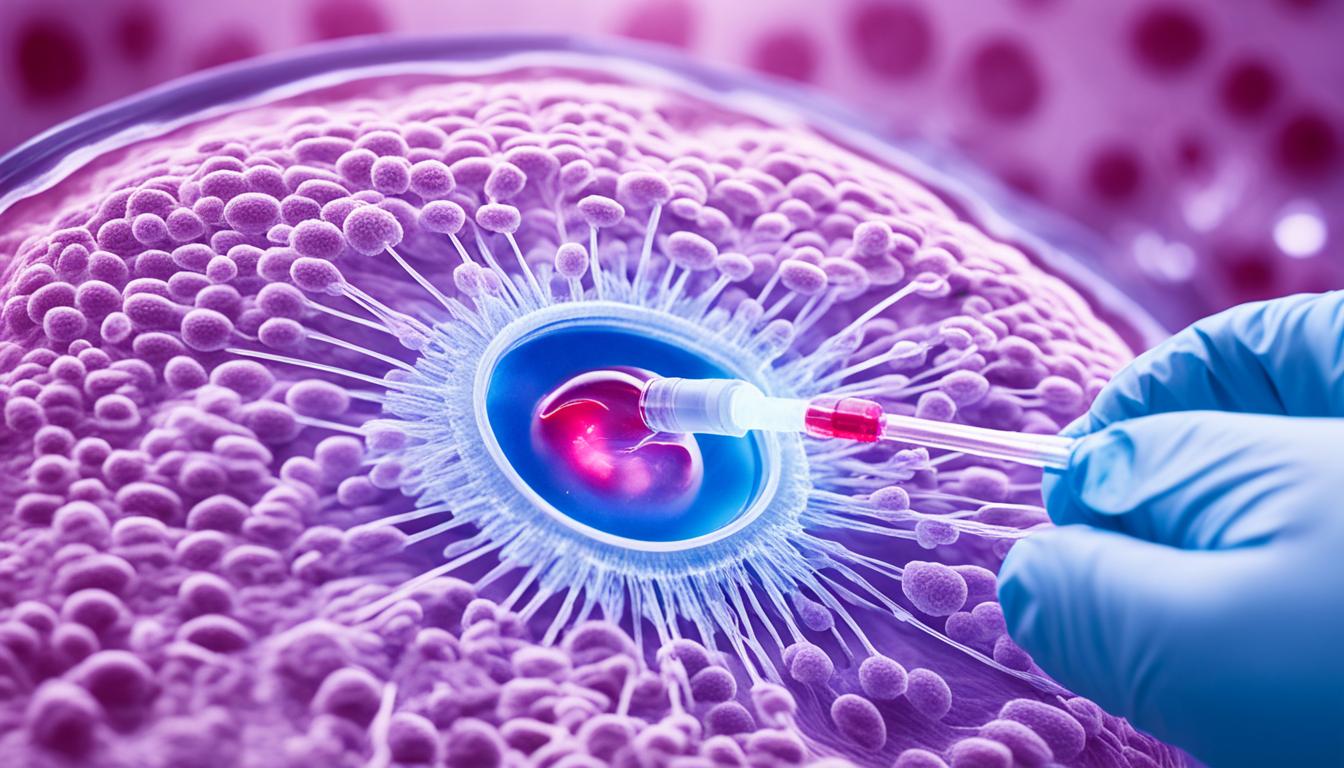Acute kidney failure occurs when kidneys suddenly stop working. This leads to issues in removing waste, controlling electrolytes, and balancing water. It’s classified by how badly the kidneys are damaged and if urine output decreases.
The causes of acute kidney failure can include lack of blood flow, infections, certain drugs, and existing kidney issues. These factors can quickly harm the kidneys, making it hard for the body to filter out toxins and balance fluids. If not treated, it can be very dangerous and possibly lead to long-term kidney problems.
To diagnose acute kidney failure, doctors use blood tests and sometimes imaging scans. Blood tests measure creatinine levels to show how well the kidneys are working. Imaging tests like ultrasound or CT scans can spot the reason for kidney damage.
Treating the main cause of kidney failure is key. This might mean stopping certain drugs, clearing infections, or boosting blood flow to the kidneys. In serious situations, treatments like hemodialysis or peritoneal dialysis might be needed to help the kidneys function.
In recent years, stem cell therapy has shown promise in helping kidney failure cases. Stem cells can renew and fix damaged kidney cells. Types such as amniotic fluid stem cells and mesenchymal stem cells have done well in tests. They work by sending signals to the kidney, encouraging repair.
Key Takeaways:
- Acute kidney failure is a condition characterized by a sudden decrease in kidney function, leading to impaired waste excretion and electrolyte regulation.
- Main causes of acute kidney failure include renal ischemia, infection, nephrotoxic medications, and pre-existing chronic kidney disease.
- Symptoms of acute kidney failure can include decreased urine output, swelling, fatigue, confusion, and chest pain.
- Diagnosis of acute kidney failure involves laboratory tests to measure serum creatinine levels and estimate glomerular filtration rate (GFR), as well as imaging tests to determine the underlying cause.
- Treatment options for acute kidney failure depend on the severity and underlying cause, ranging from addressing the cause to kidney replacement therapy.
- Stem cell therapy holds promise for the regeneration and repair of damaged renal cells in acute kidney injury, but more research is needed.
Symptoms and Diagnosis of Acute Kidney Failure
Acute kidney failure, or acute kidney injury (AKI), shows various sudden signs. These include less urine, leg and ankle swelling, feeling tired, difficulty breathing, confusion, feeling sick, and chest discomfort. The symptoms change based on what caused the issue and how bad the kidney injury is.
Doctors diagnose AKI through lab and imaging tests. Lab tests look at kidney function by measuring creatinine in the blood. To understand the GFR and the injury’s seriousness, they depend on these measures.
Healthcare providers also use imaging tests to find AKI’s root cause. Techniques like ultrasound and CT scans show detailed kidney and urinary tract pictures. They reveal any problems like blockages or inflammation. Knowing the cause helps doctors plan the best treatment.
| Laboratory Tests for Acute Kidney Failure | Imaging Tests for Acute Kidney Failure |
|---|---|
|
|
By using both lab and imaging tests, healthcare workers can pinpoint AKI. Catching AKI early and knowing its cause are key. This starts the right treatment and prevents more serious issues.
Treatment Options for Acute Kidney Failure and Advancements in Stem Cell Therapy
Treating acute kidney failure depends on the cause and how bad it is. Doctors might stop the use of harmful medications or treat infections. In serious cases, you might need dialysis to help your kidneys work.
Recently, there’s been progress in using stem cells to help kidney problems. Stem cells can renew themselves and help make more kidney cells. Many types of stem cells, like those from amniotic fluid and bone marrow, have been tested. Researchers see they could be used to treat kidney damage.
Stem cells help the kidneys heal by making and releasing substances that repair tissue. But we still need more research to know if using stem cells for kidney trouble really works. We also need to look into its possible limits.

